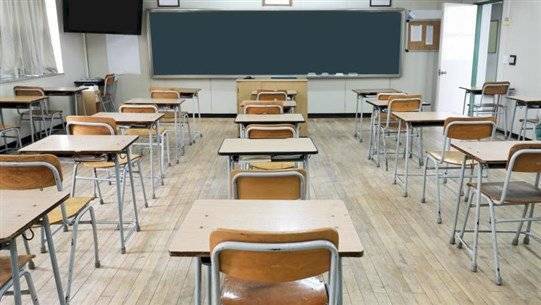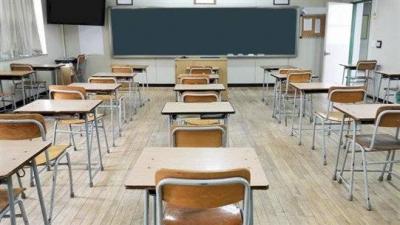The academic year will begin next Tuesday in official secondary schools. This return was announced yesterday by the Secondary Education Association in a statement that followed a voting process in general assemblies on a single recommendation: "To empower the association to take action if the following is not achieved within three months: paying two monthly salaries, in addition to the basic salary, granting monthly incentives of $130, and reducing the minimum legal teaching hours from 20 to 18, or not empowering it." This process was accompanied by questions and doubts from the announcement of this return last Tuesday until the results were released yesterday.
"Where is my vote?"
"Literally, the results were turned upside down," said professors who monitored the voting processes in the general assemblies the day before yesterday, which initially resulted in a resounding "no empowerment." The professors present some of these results from various regions. In Baalbek - Hermel, 358 teachers voted against empowering the association, while 32 voted in favor; in Akkar, 342 rejected it, while 62 approved; and in Metn, 516 opposed it, while 55 approved. The professors tried to secure their votes and the voting process by sharing photos of the minutes, writing special tables to document them, and reviewing names and signatures. The surprise came with the announcement of the results yesterday afternoon, which contradicted the initial picture, accompanied only by percentages without definitive numbers, showing the association's empowerment at 45% against 41% opposed.
The association clarifies
The administrative body faced accusations of "fraud and altering results and not publishing numbers," amid demands for "its resignation, and rejection of any dealings with it." The person responsible for the vote counting, the secretary of the association, Haidar Khalifa, denied any accusations of altering results, stating that "the few minutes that were circulated on WhatsApp are what they (without specifying who) wanted to leak." The number of secondary schools and participating centers reached 253. Khalifa added, "There were minutes that were invalidated because they voted on recommendations different from those sent, and others added new recommendations, and there were also duplicate minutes with different results." While Khalifa is unlikely to publish the correct minutes through the media, he expressed readiness to "hold representative councils in the regions and present the minutes to professors to verify the legitimacy of the administrative body’s actions."
The well-crafted statement
The disagreements between professors and the association were extensive, reflecting on the administrative body members, some of whom insisted on not holding assemblies at all, and then "drafting a statement in a precise manner that makes returning to education inevitable," according to resigned administrative body member Fouad Ibrahim. Ibrahim sees that "the results were known in advance since the beginning of summer, when the administrative body said: We will resort to assemblies, but the professors, with their votes, withdrew trust from the administrative body."
The voice of disagreements was loud, even if some administrative body members tried to suppress it; nonetheless, it was heard in the corridors of the Ministry of Finance, which they visited to follow up on "transportation allowance credits," where discussions were heated among them. However, the statement was formulated with "unparalleled cleverness," as it did not leave professors the choice to vote on whether to return to education or to accept what was achieved; rather, it was limited to empowering or not empowering the association. Consequently, most professors believed the result would be the same: either acceptance of all the association's future actions with no room for review or rejection of its empowerment to take any action, and thus they would not return to the bases again in the event of failing to fulfill promises and would act unilaterally.
The future of official schools
On the other hand, it appears that assemblies are unnecessary. In several areas, some secondary schools began teaching earlier this week, and some even started much earlier, in September. This situation cannot be politicized, as violations occur in all regions without a specific sectarian or political color. Yes, teaching began first in the southern and Bekaa regions, but it currently includes the north, Beirut, Metn, and Jbeil.
In light of the initial scene rejecting the administrative body's orientations, supporters of the return stand to say something that must be noted. "Closing official education is an aim we will not allow to be reached," according to a professor from a secondary school in the southern suburb, and "an open-ended strike without limits is the easiest way to achieve this goal." They provide an example of this: the decrease in the number of classes and students in Ghobeiri Secondary School, where the number of first secondary classes dropped from 11 to 5 last year, and only 3 this year. Additionally, the number of students in the same secondary school fell from 700 to 390, a number likely to decrease further this year. They ask, "Who benefits from closing official schools?" Moreover, the significant drop in student numbers also affects teachers, who will lose their hours in their schools. Today, only the children of employees and the impoverished remain in official schools, who can't even secure the $100 needed. Therefore, it is unacceptable to close the door to learning for them, and "until state conditions improve, we must continue with what is possible." This is the most difficult equation between the teacher's right to a decent living and the student's right to learn, while the state watches both.




